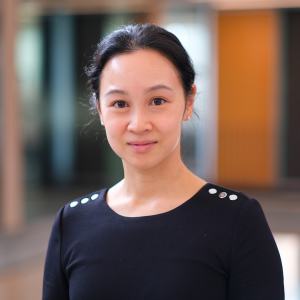Research Group
Ng Group
Computational Biology Lab
Our lab aims to discover novel biomarkers and therapeutic targets in cancer by harnessing the power of multiomics profiling, bioinformatics and artificial intelligence. Our computational biology-driven approach will help unravel the complexities of cancer and to advance precision oncology research.
The Challenge
The advances in sequencing technologies have ushered in the era of ‘big data’ and transformed precision oncology. Big data cancer research holds great promise in diagnosis and clinical management, but substantial hurdles remain in the efficient analysis of vast and diverse multiomics datasets to uncover actionable insights. Moreover, the inherent diversity within and between tumors poses challenges in the identification of consistent biomarkers and therapeutic targets. Our lab addresses these challenges by integrating bioinformatics, statistics and AI to advance our understanding of tumor biology and improve patient outcomes.
Main research areas
Cancer Bioinformatics
Cancer bioinformatics is an interdisciplinary field straddling cancer biology, statistics and data and computer sciences. It is indispensible in the omics era. We have developed automated omics data processing pipelines to enable robust and reproducible analysis of omics data. We contribute to the establishment of the state-of-the-art sequencing analysis pipelines for major cancer genome consortia and have contributed to recommendations on the clinical interpretation of cancer variants.
Characterizing Human Cancers via Multiomics Profiling and Data Integration
We employ cutting-edge multiomics technologies to define the molecular features and heterogeneity of cancers, aiming to provide a comprehensive understanding of cancer biology and to identify potential therapeutic targets. Using state-of-the-art single-cell multiomics and spatial transcriptomics profiling, we delve into the cellular dynamics within tumors to understand the factors driving heterogeneity and therapy resistance.
Understanding Cancer Evolution and Genomic Instability
Akin to the evolution of biological populations over generations, cancer evolution is driven by the sequential acquisition and selection of somatic genetic alterations. Genomic instability is simultaneously a driving force behind cancer evolution and a therapeutic target. Our research focuses on deciphering the evolutionary trajectories and genomic instability of cancer, with the goal of addressing clinical challenges related to metastasis and therapy resistance through detailed genomic analyses.
Developing AI Prognostic and Predictive Models
AI is becoming an integral component to big data cancer research. AI helps identifying patterns in the data that traditional statistical analyses miss. We develop artificial intelligence models that integrate multiomics and clinicopathological data to enhance prognostication and inform personalized treatment strategies in oncology.
Selected publications
Integrated longitudinal analysis of adult grade 4 diffuse gliomas with long-term relapse interval revealed upregulation of TGF-β signaling in recurrent tumors.
Integrative proteogenomic characterization of hepatocellular carcinoma across etiologies and stages.
GATA3 and MDM2 are synthetic lethal in estrogen receptor-positive breast cancers.
Epigenetic priming in chronic liver disease impacts the transcriptional and genetic landscapes of hepatocellular carcinoma.
PipeIT2: Somatic Variant Calling Workflow for Ion Torrent Sequencing Data.
Systematic identification of novel cancer genes through analysis of deep shRNA perturbation screens.
PipeIT: A Singularity Container for Molecular Diagnostic Somatic Variant Calling on the Ion Torrent Next-Generation Sequencing Platform.
Genomic characterization of metastatic breast cancers.
Diagnostic Targeted Sequencing Panel for Hepatocellular Carcinoma Genomic Screening.
Genetic profiling using plasma-derived cell-free DNA in therapy-naïve hepatocellular carcinoma patients: a pilot study.
Group members



